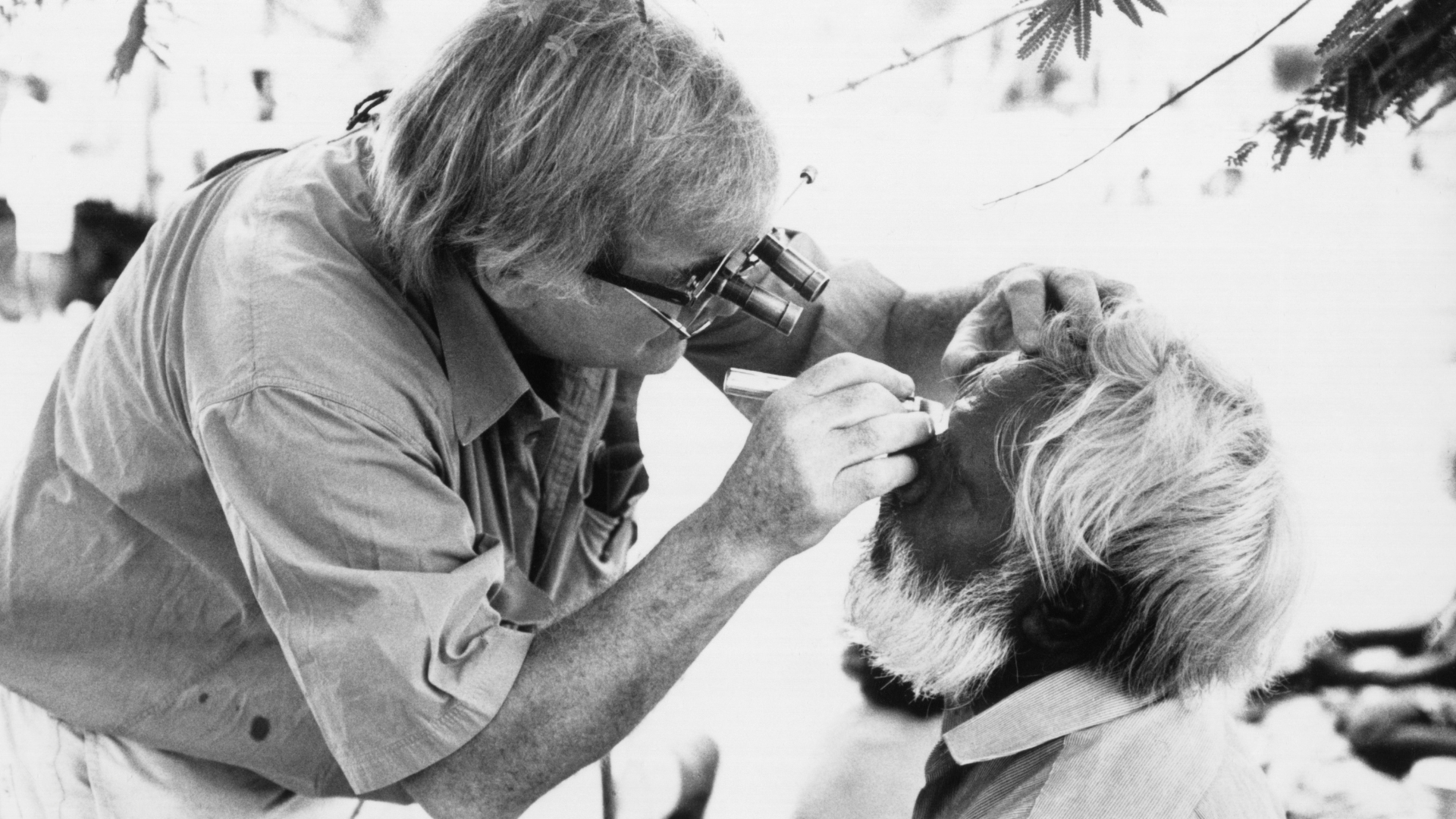Social Justice
Why is social justice important?
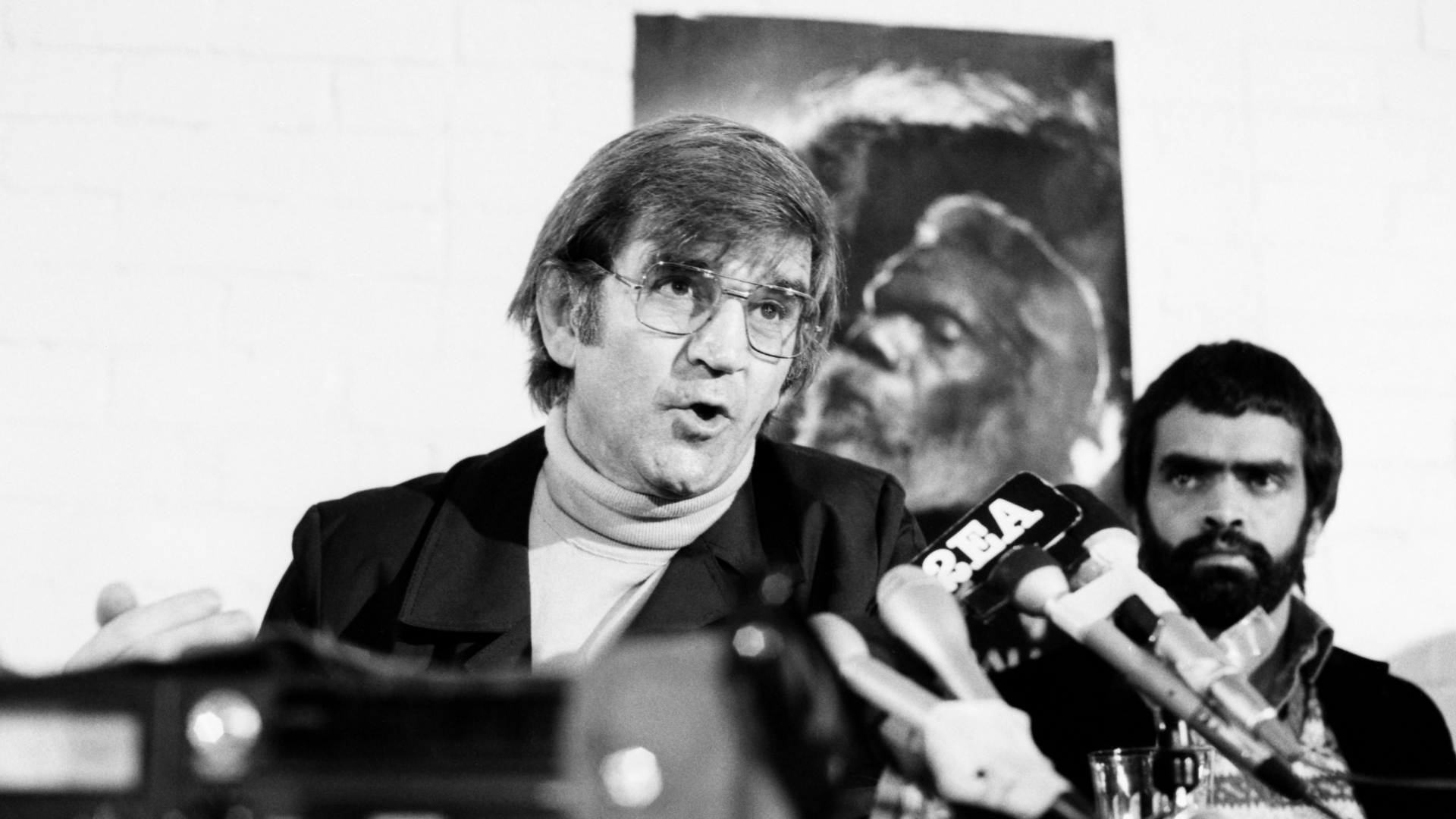
There is significant inequity in the world – on the one hand, you have billionaires and on the other, there is extreme poverty. Inequity is prevalent in Australia too. Despite Australia enjoying a high standard of living, there are clear disparities between Aboriginal and Torres Strait Islander Peoples and other Australians across all indicators of quality of life, including in eye health.
We should all stand in solidarity and push for social justice for Aboriginal and Torres Strait Islander Peoples in order to address this inequity. That’s why The Fred Hollows Foundation cares about social justice.
We should all stand in solidarity and push for social justice for Aboriginal and Torres Strait Islander Peoples in order to address this inequity. That’s why The Fred Hollows Foundation cares about social justice.
In a hurry?
Click on the link below to go straight to the section you’re interested in the most:
What is the definition of social justice?
The dictionary definition of social justice may summarise it as the fair treatment of all people in a society, but it is much more than that. Social justice is about creating a society where each individual matters.
Social justice focuses on respecting and upholding the rights of everyone. Social justice seeks solutions to inequality, and advocates for the equitable distribution of resources within a community and country so that every single person has the same opportunities and freedom.
Social justice includes equity in health care provision, employment, education, and housing. People are often excluded from services or treated unfairly due to discrimination based on Indigenous status, ethnicity, gender, place of residence (geography), socio-economic background or if they are living with a disability. Social justice is about addressing this inequity and discrimination.
Social justice focuses on respecting and upholding the rights of everyone. Social justice seeks solutions to inequality, and advocates for the equitable distribution of resources within a community and country so that every single person has the same opportunities and freedom.
Social justice includes equity in health care provision, employment, education, and housing. People are often excluded from services or treated unfairly due to discrimination based on Indigenous status, ethnicity, gender, place of residence (geography), socio-economic background or if they are living with a disability. Social justice is about addressing this inequity and discrimination.
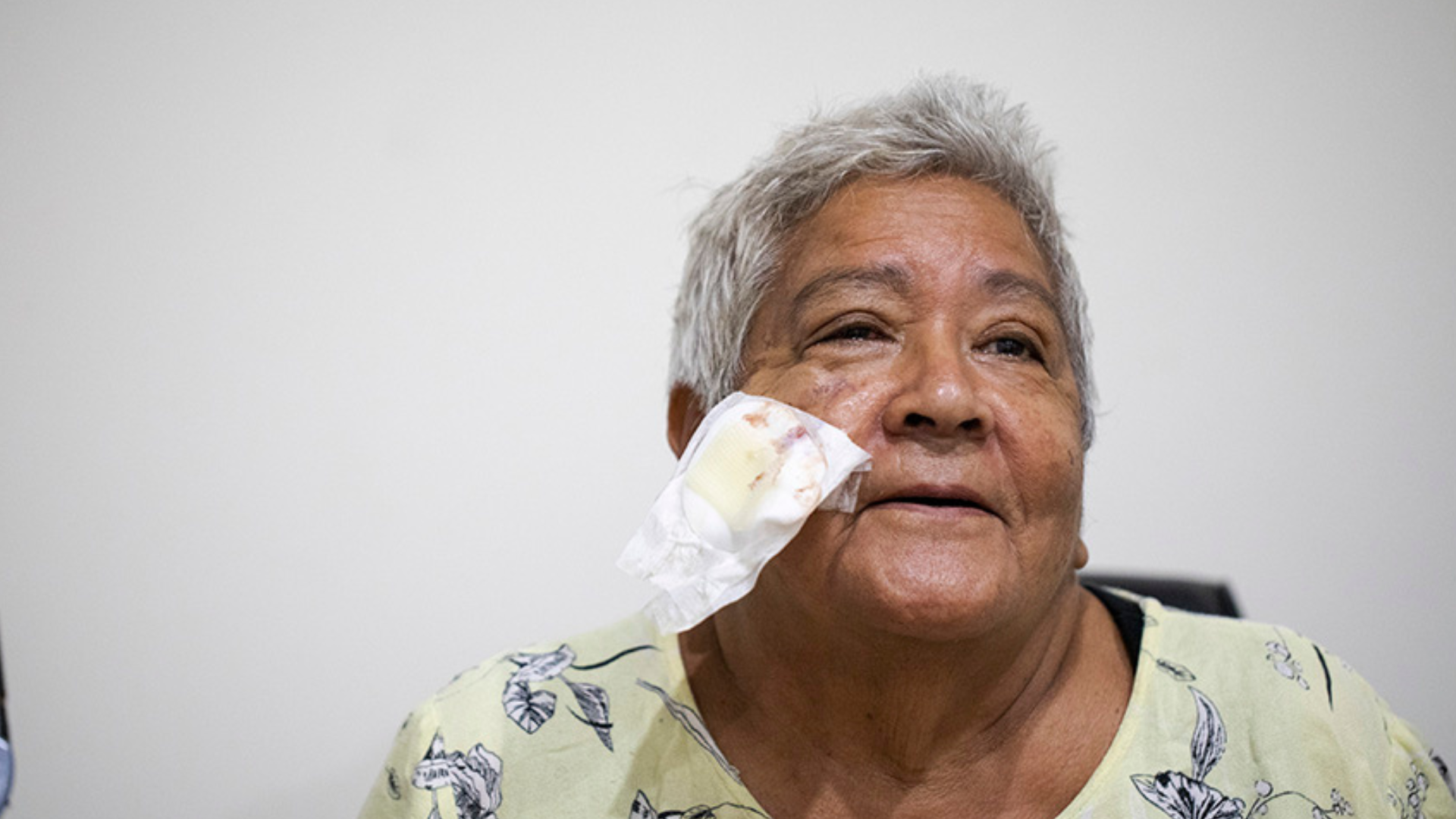
Photo credit: Michael Amendolia
Social justice matters because everyone deserves to be treated with equal respect and dignity.
In Australia, Aboriginal and Torres Strait Islander Peoples are three times more likely to experience avoidable blindness or vision loss than other Australians. Aboriginal and Torres Strait Islander Peoples also experience inequitable health and social outcomes in a range of areas. This is because of inequitable access to services, lack of culturally safe care, racism, and governments that don’t listen to the needs and priorities of Aboriginal and Torres Strait Islander Peoples.
Social justice reforms matter because it ensures that Aboriginal and Torres Strait Islander Peoples can be heard and make decisions about their lives, because Aboriginal and Torres Strait Islander Peoples are the ones who know what is best for their communities. Social justice is about ensuring that Aboriginal and Torres Strait Islander Peoples can always exercise their right to sight, good health and self determination.
In Australia, Aboriginal and Torres Strait Islander Peoples are three times more likely to experience avoidable blindness or vision loss than other Australians. Aboriginal and Torres Strait Islander Peoples also experience inequitable health and social outcomes in a range of areas. This is because of inequitable access to services, lack of culturally safe care, racism, and governments that don’t listen to the needs and priorities of Aboriginal and Torres Strait Islander Peoples.
Social justice reforms matter because it ensures that Aboriginal and Torres Strait Islander Peoples can be heard and make decisions about their lives, because Aboriginal and Torres Strait Islander Peoples are the ones who know what is best for their communities. Social justice is about ensuring that Aboriginal and Torres Strait Islander Peoples can always exercise their right to sight, good health and self determination.
What are the five principles of social justice?
Social justice includes the following five principles:
1. Human rights
Human rights are based on principles of dignity, equality and mutual respect and they recognise the inherent value of each person. The rights of Aboriginal and Torres Strait Islander Peoples are enshrined in the United Nations Declaration on the Rights of Indigenous Peoples, which sets out the right of Indigenous Peoples to self determination. This means that Aboriginal and Torres Strait Islander Peoples have the right to choose what is best for them and make decisions about their lives.2. Equity
Equity is an important step on the way to social justice. Equity is about ensuring that everyone has the same access to opportunities, resources and services. However, equity doesn’t mean that everything looks the same for everyone. Equity is about acknowledging the different circumstances and needs of individuals, and allocating enough resources to ensure that every individual has equal access to a service or opportunity.3. Diversity
Diversity matters because we are stronger when we include, celebrate and learn from diverse voices and experiences. We can support diversity by amplifying Aboriginal and Torres Strait Islander voices to ensure that their priorities and aspirations are heard.4. Participation
Everyone has the right to participate in society and in decision making in a way they find meaningful. Aboriginal and Torres Strait Islander Peoples have the right to participate and make decisions that affect their lives. Aboriginal and Torres Strait Islander Peoples know what their communities need, and social justice supports Aboriginal and Torres Strait Islander leadership and participation in decision making.5. Access to resources
Everyone has the right to equitable access to resources. In a social justice approach, access to resources should be modified based on the specific needs of the individual to ensure equity. To ensure equity in access to resources for Aboriginal and Torres Strait Islander Peoples, services need to be culturally safe and responsive, and easily accessible by different communities in different locations.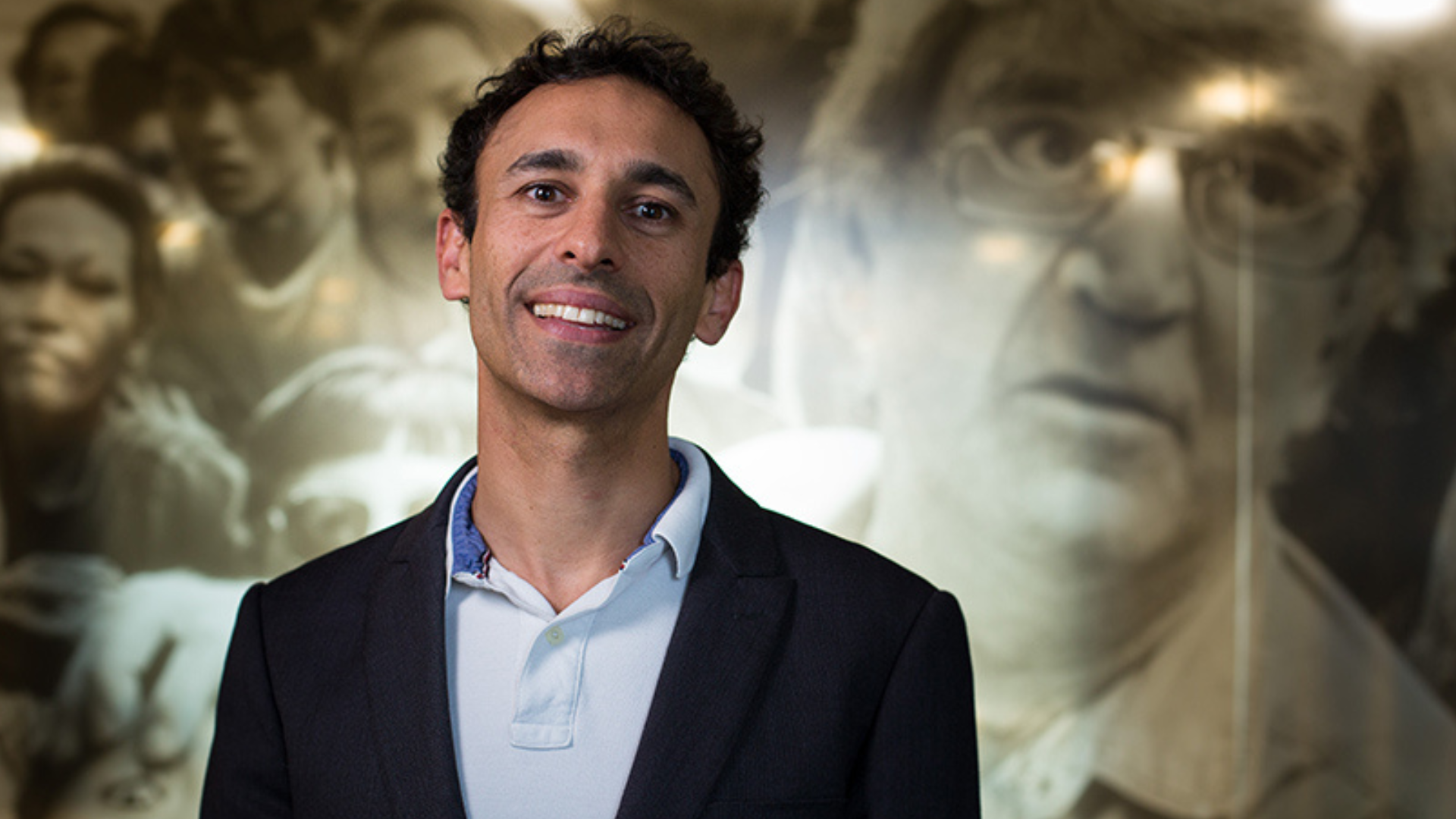
Dr Kris Rallah-Baker, Australia’s first Indigenous Ophthalmologist.
Photo credit: Daniel Jesus Vignolli
Photo credit: Daniel Jesus Vignolli
How does The Fred Hollows Foundation take part in social justice?
The Fred Hollows Foundation is committed to creating an equitable world through our social justice work because while it may seem like eye diseases don’t discriminate, avoidable blindness most certainly does.
When Aboriginal and Torres Strait Islander Peoples’ right to good health is denied, they face greater risk of developing preventable and treatable eye diseases such as trachoma, cataract, refractive errors, and diabetic retinopathy. These diseases can cause permanent blindness if not treated on time or managed properly.
Just like everyone else in Australia, Aboriginal and Torres Strait Islander Peoples should be able to freely exercise their right to sight as well as their right to good health and self-determination. In order to support these rights, The Foundation is also committed to creating social justice for Aboriginal and Torres Strait Islander Peoples.
The Foundation is fulfilling Fred Hollows’ legacy, and has supported social justice in a number of ways, whether it’s delivering accessible eye health in communities that need it the most or by standing up for what is right by elevating the voices of Aboriginal and Torres Strait Islander Peoples.
This approach is mapped out in our Indigenous Australia Strategy and implemented through The Foundation’s Indigenous Australia Program and our overarching commitment to Aboriginal Community Control and self-determination.
Advocating for the Uluru Statement from the Heart is a clear demonstration of this support, and sees The Foundation elevating the calls of Aboriginal and Torres Strait Islander Peoples, leaders and communities for a constitutionally enshrined First Nations Voice to Parliament, and a Makarrata Commission to oversee a process of Truth-Telling and Agreement Making (Treaty).
The Foundation has also been an active member and supporter of the Close the Gap: Indigenous Health Campaign and National Steering Committee since the first meeting in 2006. The Close the Gap campaign aims to close the health and life expectancy gap between Aboriginal and Torres Strait Islander Peoples and non-Indigenous Australians within a generation.
The campaign is built on evidence that shows significant improvements in the health status of Aboriginal and Torres Strait Islander Peoples can be achieved by 2030. Australia's peak Aboriginal and Torres Strait Islander and non-Indigenous health bodies, NGOs and human rights organisations are working together to achieve equality in health and life expectancy for Aboriginal and Torres Strait Islander Peoples.
When Aboriginal and Torres Strait Islander Peoples’ right to good health is denied, they face greater risk of developing preventable and treatable eye diseases such as trachoma, cataract, refractive errors, and diabetic retinopathy. These diseases can cause permanent blindness if not treated on time or managed properly.
Just like everyone else in Australia, Aboriginal and Torres Strait Islander Peoples should be able to freely exercise their right to sight as well as their right to good health and self-determination. In order to support these rights, The Foundation is also committed to creating social justice for Aboriginal and Torres Strait Islander Peoples.
The Foundation is fulfilling Fred Hollows’ legacy, and has supported social justice in a number of ways, whether it’s delivering accessible eye health in communities that need it the most or by standing up for what is right by elevating the voices of Aboriginal and Torres Strait Islander Peoples.
This approach is mapped out in our Indigenous Australia Strategy and implemented through The Foundation’s Indigenous Australia Program and our overarching commitment to Aboriginal Community Control and self-determination.
Advocating for the Uluru Statement from the Heart is a clear demonstration of this support, and sees The Foundation elevating the calls of Aboriginal and Torres Strait Islander Peoples, leaders and communities for a constitutionally enshrined First Nations Voice to Parliament, and a Makarrata Commission to oversee a process of Truth-Telling and Agreement Making (Treaty).
The Foundation has also been an active member and supporter of the Close the Gap: Indigenous Health Campaign and National Steering Committee since the first meeting in 2006. The Close the Gap campaign aims to close the health and life expectancy gap between Aboriginal and Torres Strait Islander Peoples and non-Indigenous Australians within a generation.
The campaign is built on evidence that shows significant improvements in the health status of Aboriginal and Torres Strait Islander Peoples can be achieved by 2030. Australia's peak Aboriginal and Torres Strait Islander and non-Indigenous health bodies, NGOs and human rights organisations are working together to achieve equality in health and life expectancy for Aboriginal and Torres Strait Islander Peoples.
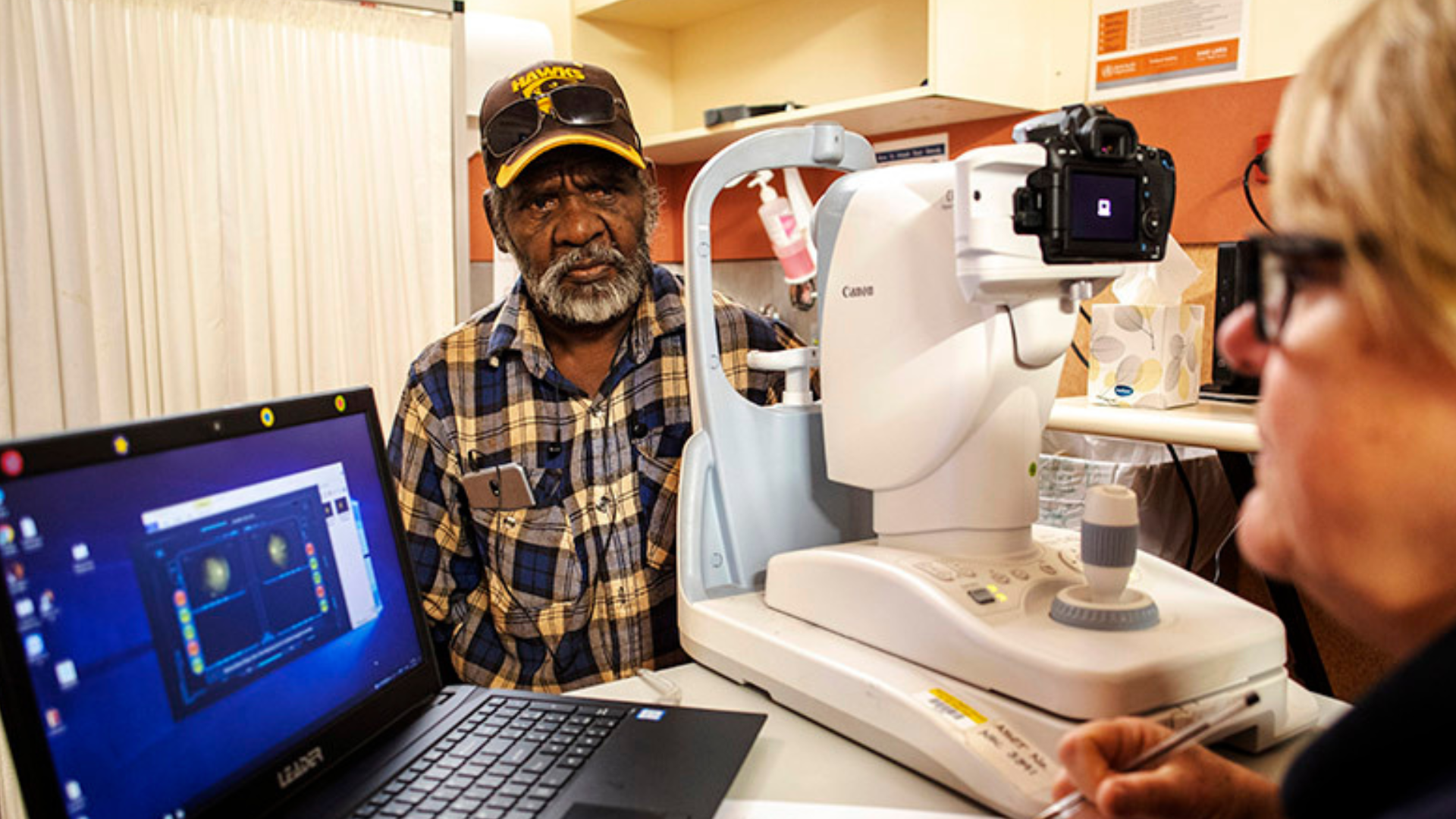
Photo credit: Michael Amendolia
Learn more
- Get our senior program advisor’s account of how we deliver eye health services in NT
- Discover five important things you should know about Aboriginal eye health
- See why we support the Uluru Statement from the Heart
- Find out the five ways in which you can help Close the Gap
COVER PHOTO: Gerrit Fokkema

